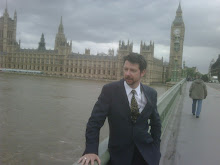From my Daily Record column
Prompted by a poem no less I asked, what is the Brexit temperature like in Dublin?
“The nation is holding it’s nerve,” my Irish friend replied with the bedside manner of a solicitous doctor.
The Irish Republic has, of course, the most to lose from a hard Brexit.
Every sector of the economy, from farming to pharmacy, would suffer a “severe impact” a fortnight from now, according to the Dublin government’s assessment of “the situation”, another lovely euphemism for Brexit from the people who coined “the Emergency” for WWII and “the Troubles” for a bloody street war in the north.
Like everyone else the Irish government is braced for impact and set aside a grain store of money to compensate for the bodyblow to trade into its biggest market, the UK.
But my pal explained how some in the Irish government have looked over the precipice and gamed beyond a hard exit.
They see a no-deal Brexit not as the end point, but the beginning of the UK’s eventual capitulation to the EU deal that has always been on offer, the only one on offer.
After a few months of no mushrooms on supermarket shelves and a 20 per cent drop in the value of sterling leaving a litre of Spanish holiday lager costing more than a fiver, the UK government will sign up, say some in Dublin.
Starving the Brits into acceptance might have a wonderful historic irony but is as much a flight of fancy as a clean Brexit itself, particularly as the Commons options begin to narrow to Theresa May’s Brexit or a lengthy extension (a political purgatory for us all).
By then someone must start blaming the Irish, whose great success has been to get remarkable solidarity from the EU27 to stop them being picked off by the imperious instincts of the UK.
Brexit is, after all, hopelessly snagged on Britain’s historic relationship with the island and a commitment to the backstop to keep the border between British north and Republican south open.
There were plenty warnings about this lobster creel conundrum during the referendum campaign. But the UK looked the other way, much as it did when the Good Friday Agreement turned Northern Ireland into something that was not wholly British or Irish and anchored in Europe.
The people of Northern Ireland understood this well and voted by majority to stay in the EU. They are, thanks to tribal voting patterns and historic boycotts, mis-served at Westminster.
The DUP, I expect, will eventually pay a price for being so badly out of step with a place that would rather see itself as a bridge, not a barrier, between the EU and the UK.
While Brexit has not shifted the dial on Scottish independence, surveys show 62 per cent of people in Northern Ireland believe Brexit makes a united Ireland, and continued membership of the EU, more likely. That doesn’t mean it’s what they want but if you’re young and Norn, and not already left to study at a Scottish University, do the DUP represent the future?
The past is never far behind the future though. The New IRA has claimed responsibility for four parcel bombs sent to three London transport hubs and Glasgow university. The events of Bloody Sunday resurfacing in a court case evoke old hurts and memories.
Even at the height of an Islamist terror threat MI5 still allocates 22 per cent of resources to countering Northern Ireland-related terrorism, all reminders of what is at stake
Often a single line that crystallises as an idea is the spark for an empty column.
This morning it was Radio Scotland’s thought for the day slot which quoted the Irish poet WB Yeats: “Things fall apart; the centre cannot hold; Mere anarchy is loosed upon the world,”
It seems apt for the times, doesn’t it?.
But there is now, apparently, a Yeats index, a ruling that the more quotable Yeats seems to commentators, the worse things actually are.
If the poet has made it onto Thought for the Day “the situation” must be quite bad.



